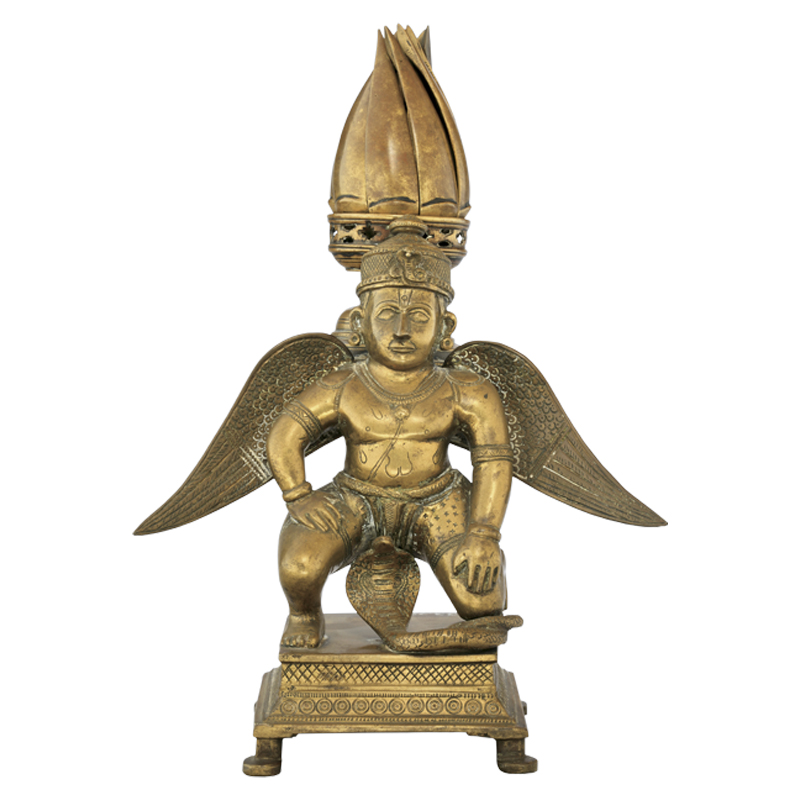Garudadipa
Description
Sir D. J. Tata Collection
The impressive lamp must have been made for a Vaishnava temple. Garuda, the vahana (mount) of Lord Vishnu, is shown in human form, identified by his large out-stretched wings and sharp, beak-like nose. He wears a mukuta (crown) with a serpant, earrings, necklace, armbands, kadas (bangles), and yajnopavita (sacred thread), and has the typical U-shaped Vaishnava tilaka on his forehead and similar marks on his body. He is shown subduing a Naga with his left knee. This is a symbolic representation of the mythology connected with Garuda and his Naga cousins whom he defeated.
The interesting part of this figure is the lamp placed behind Garuda’s head. The lamp is in the form of a padma (lotus) which is also one of the attributes of Vishnu. Interestingly the lamp can be opened and closed as required. When not in use, the form presented is that of a lotus bud, but unscrewing the bud to use the lamp the fuel receptacle appears as a round bowl forming the centre of a full-bloomed lotus.
The practice of using animal and bird figures for lamps and other ritual objects is common in India. This is probably because the vahana which is favourite of a particular deity is a suitable medium for conveying a devotee’s gift or offering to the god. The Garudadipa is one of the 16 lamp types (Shodashadipa Lakshana) mentioned in the Shilpashastras.
Collection
Indian Decorative Art
Object Type
Decorative Art Lamp
Material
Brass
Schools/Culture/Period
--
Technique
--
Date
Early 20th Century CE
Location
Maharashtra
Dimension
H: 30 cm
